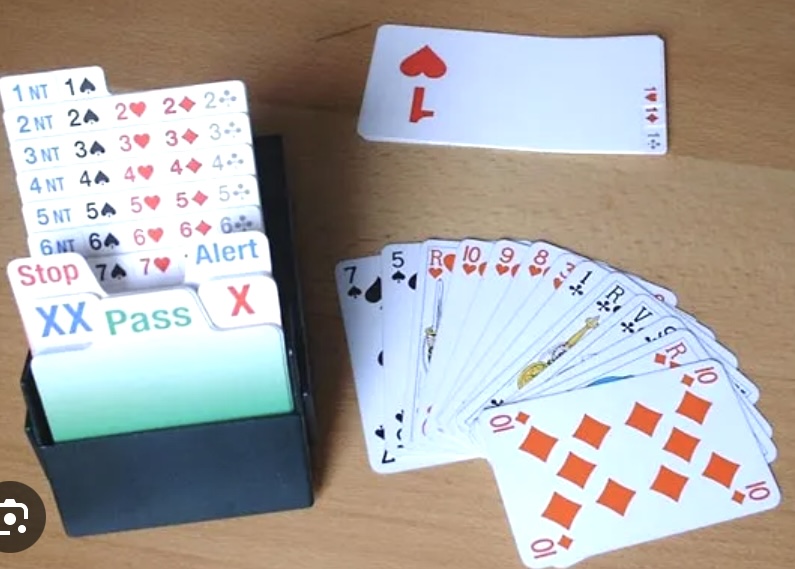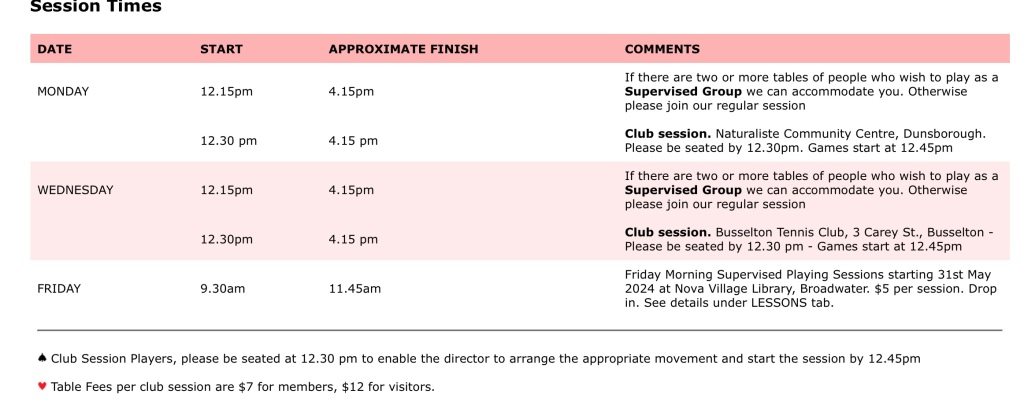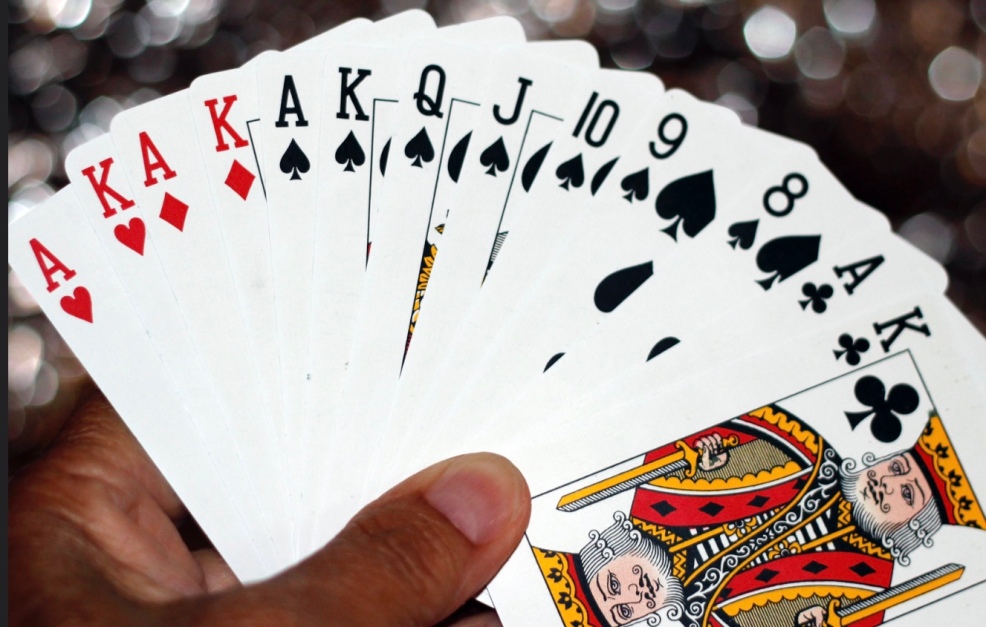Many games provide fun, but Bridge grips you. It exercises your mind. Your mind can rust, you know, but Bridge prevents the rust from forming.”Omar Sharif.

Having gained a basic understanding of the card game Duplicate Bridge some years ago in Perth, and prior to moving to Busselton, Paul and I had rarely had the chance to consolidate our learning. For those of you not familiar with this card game, there are many systems that one can use to play the game. The system we first learned to play in was called, Acol. That was the preferred system played in Western Australia at the time, whilst the Eastern States played predominantly in a system referred to as, American Standard. In the years between us first getting a basic understanding of the Acol bidding system of the game, and returning to the game in recent years Western Australians have changed their preferred system and now also play predominantly in American Standard. When we decided to return to the game we undertook some refresher lessons with the Busselton Club, but this time using the American Standard system for our bidding.
The Busselton Bridge Club doesn’t have its own rooms. On Monday afternoons they rent rooms at the Dunsborough Community Centre, and on Wednesday afternoons they rent rooms at the Busselton tennis club. The club has a newish member who, like many others, has become an addict to the game of Bridge (yes, be warned the game is super addictive). Recognising the adverse effect that both Covid, and Bridge on line has been having on the game, reflected by dwindling numbers in Bridge clubs throughout the country, this dedicated Bridge Player has been diligently conducting Bridge lessons and co-ercing newbies to the game to jump in the deep end and to come over to the club sessions to play.
At this point in time I’ll relate a little about my introduction to the game of Bridge. I learned to play in Perth some years ago, and was one of more than 50 people in the class. Following on from 18 x 3 hour classes, the club conducted follow up, supervised play sessions to enable the learners to consolidate their learning. Less than half continued on with the supervised sessions. To my knowledge I was the only one from that class who eventually ventured into playing in the club sessions, and that was only because the partner of the teacher who taught the lessons saw some potential in my play and offered to mentor me into ‘real play’. Those first times of playing in normal club sessions are up there amongst the most daunting experiences of my life. I relate my initial experience so as to be able to relate the differences between both learning in a big city club and learning in a smaller regional centre, and also the introduction to playing at club level.
Because the big city clubs have their own club rooms, the rooms are constantly set up with the tables ready to play. Most of the city clubs are able to be sectioned off so as to allow normal play sessions to be conducted alongside supervised play sessions, and as the club rooms are for Bridge exclusively, multiple numbers of sessions can be held over a week. Most city clubs run approximately three week-day games, 1 – 2 week-end games, and 1 -2 week night sessions, as well as a few learners and supervised sessions. It’s these learner and supervised sessions that enable the clubs to grow, or at least to sustain numbers.
Compare this to our Busselton club. We have to pay rent to hire the rooms for our twice weekly club games. Our tables and computers have to be set up, and taken down before and after each game. If lessons or supervised sessions are conducted this means hiring yet another venue. The lessons, along with the games are literally, ‘all over the place’. It would be lovely if the Busselton Council recognised the contribution that the game of Bridge made to the mental health of many of its residents and supplied us with our own club rooms to rent on a permanent basis, as is the case in many other areas throughout the country. But alas to date that hasn’t happened.
As I mentioned earlier Covid caused a massive decline in the numbers of Bridge players, and I think this has been the case all over the world. When people couldn’t attend the sessions due to isolation rules many started to play on line, and some have never returned to play in the clubs. With many never having returned to play in the Bridge Clubs, I fear the numbers could be dwindling all over the country, if not the world. Due to the dedication, tenacity and sheer single mindedness of one particular Busselton Club member though, I’m pleased to say, our club, my club, The Busselton Bridge Club, is growing in numbers.
I applaud Linda her tenacity, her dedication and her ability to persevere when I’m sure at times she must feel like throwing in the towel, so to speak. I applaud her ability to get her learners to ‘jump in the deep end’, and with only a sketchy knowledge of the basics of Bridge, she coerces many of her Bridge students to commence playing at club level. Similarly, I applaud all of the new comers who do take the plunge and who come up to play. I appreciate how daunting it must be for you all. Your bravery astounds me!
If you’d like to learn Bridge and you live in Busselton or the south west area of WA, please make contact with our club. Our contact details are:
| Phone | 0417 981 585 | |||||||
| bussbridgesecretary@gmail.com | ||||||||
If however you already have a basic understanding of the game and aren’t currently playing at a club level, we’d love to see you come along to one of our sessions.


But we can promise we’ll do our best to welcome you to our tables, to our club, The Busselton Bridge Club.

I have never played Bridge and it does sound involved. I learnt Mahjong last year and enjoyed the mental stimulation. I suspect Bridge would be similar if not better. How long do the games go for?
LikeLike
It is more comparable to Chess than Mahjong really. It’s a bit challenging to learn the conventions and calls, and once they are committed the memory, then it literally takes years to become good at it. It’s said that one never actually fully learns the game, and I think that is said correctly. A round of Duplicate Bridge in a club takes about 3 hours to complete. Friendly games of what’s termed ‘kitchen bridge’ can be as long or short as you want, but ‘kitchen bridge’, is a totally different game. The cards and the play is the same, but in ‘kitchen bridge’ the luck of the cards is relevant, in Duplicate Bridge this isn’t a factor. In Duplicate Bridge the same hands of cards are played by different people, so to win you have to do better than everyone else did with that hand of cards. It’s hard to explain, but you can literally lose every hand and still get the top score of the day. I’ve been a card player all my life, but nothing compares to Bridge. It truly is a wonderfully addictive game. I think it’s a game you would embrace Amanda.
LikeLike
It does sound daunting and a bit fearsome, but how amazing you must all be to keep the club going. Well done to Linda and also to you for doing your bit to promote the club. I’ve thought about doing some research into what is offered here.
LikeLiked by 1 person
Bridge is a fantastic game, and one of few games that relies on skill rather than luck. It takes years to master the game well. I’d thoroughly recommend it
LikeLiked by 1 person
Bridge is a great game. I haven’t played for years, but think I could remember and play.
LikeLiked by 1 person
It’s really addictive, but so good for the mind, and memory.
LikeLiked by 1 person